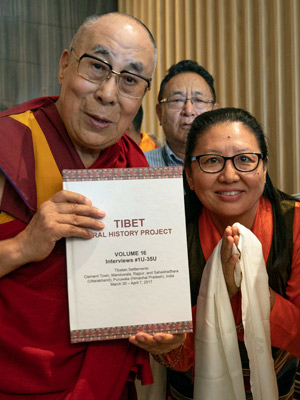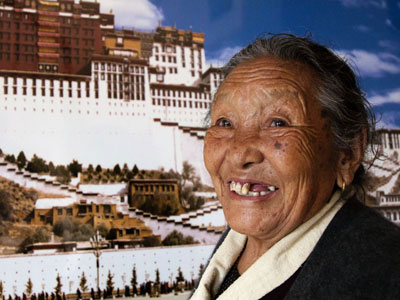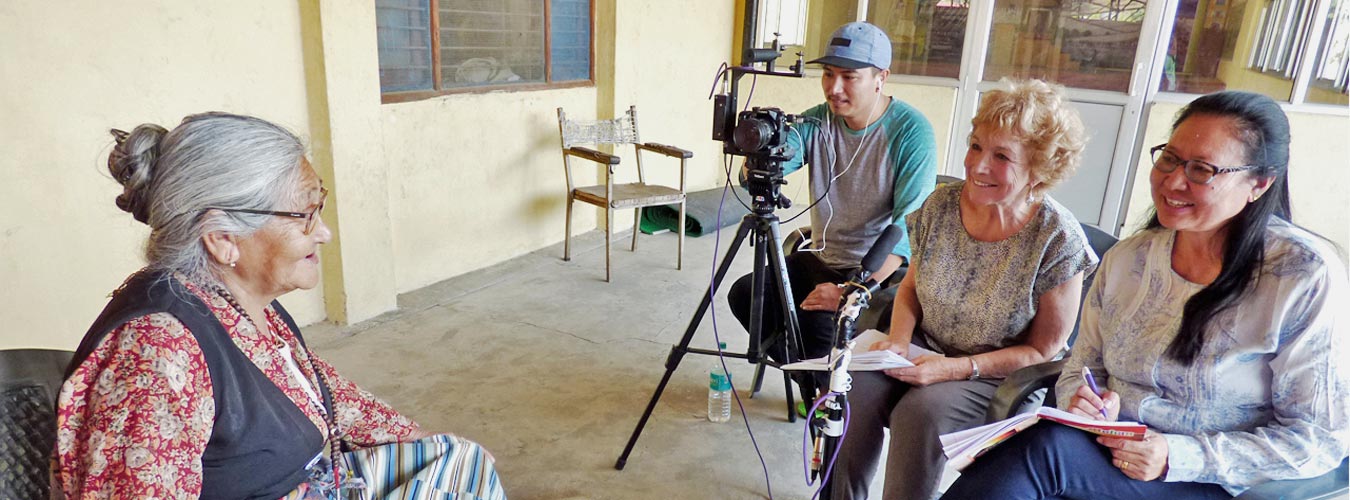MISSION AND HISTORY

Tibet Oral History Project’s mission is to document the life stories of Tibetan elders living in exile and then to disseminate their oral histories through print, broadcast media, and the Internet. Tibet Oral History Project (TOHP) strives to communicate the Tibetan experience through as many diverse media and venues as possible and to make these first-person accounts available to the Tibetan and Chinese populations, the general public, researchers, and scholars. The oral histories collected by TOHP will afford all who review them the opportunity to hear directly from the Tibetans about life in Tibet before, during, and after China’s invasion and occupation in the 1950s. It is hoped that the elders’ accounts will be used fairly, to compare and contrast the Chinese government’s official version of Tibetan history with the personal narratives contained in the oral histories. It is also hoped that people who have access to these oral histories will acquire a deeper and more nuanced understanding of recent important historical events.
The exiled elders interviewed by TOHP are the last generation to have lived in an unoccupied Tibet. They are the last people on earth to fully embody the Tibetan language and culture. The urgency of TOHP’s preservation work is further dictated by the age of the exiles—many were interviewed at 80 to 90 years old. The oral history collection gives voice to a people, their age-old way of life and the total dismantling of their society following the Chinese invasion.
The importance of this project is:
- Historical: The project documents the Tibetan elders’ personal recollections of life in Tibet before 1949 and provides eyewitness accounts of the devastation that followed the Chinese invasion and occupation in the 1950s.
- Cultural: The elders describe unique, age-old customs; festivals that highlight their art, music and dance; and traditional rituals carried out in weddings, births and funerals.
- Philosophical: The interviews reveal how the elders’ lives were imbued with Buddhist beliefs and principles incorporated in their daily lives and celebrated through ceremonies at their local monasteries.
- Political: The elders related how their volunteer resistance force initially fought the invading Chinese troops until they were overwhelmed. Despite their enormous losses, the elders explain their current commitment to follow the Dalai Lama’s request to practice the Middle Way and achieve peace through dialogue and non-violence.
 The Tibet Oral History Project (TOHP), on the advice of His Holiness the 14th Dalai Lama, was initiated by Marcella Adamski, Ph.D. She met with the Dalai Lama in 1999 in Dharamsala, India, where she had been interviewing recently escaped children as part of an investigation of human rights abuses in Tibet. At her meeting with His Holiness the Dalai Lama, Adamski asked what more might be done to help the Tibetan people. His Holiness urged Adamski to record the life stories of Tibetan elders living in exile before they died and their stories were lost forever. He wanted their childhood experiences of early life in Tibet, with its rich culture and religious traditions, preserved for generations to come.
The Tibet Oral History Project (TOHP), on the advice of His Holiness the 14th Dalai Lama, was initiated by Marcella Adamski, Ph.D. She met with the Dalai Lama in 1999 in Dharamsala, India, where she had been interviewing recently escaped children as part of an investigation of human rights abuses in Tibet. At her meeting with His Holiness the Dalai Lama, Adamski asked what more might be done to help the Tibetan people. His Holiness urged Adamski to record the life stories of Tibetan elders living in exile before they died and their stories were lost forever. He wanted their childhood experiences of early life in Tibet, with its rich culture and religious traditions, preserved for generations to come.
His Holiness also believed the elders’ eyewitness accounts of China’s invasion, occupation, and human rights violations in Tibet needed to be documented for the historical record. He felt that these testimonies would inform the world about the plight of the Tibetan people and, if translated, would educate the next generation of Chinese, who have no accurate information about Tibetan life and culture due to their government’s control of the media. The Dalai Lama, known for his interest in technology, recommended that the elders’ oral histories be made available to a global audience through the Internet and to the Chinese through translated interviews.
Adamski, a clinical psychologist who had previously worked with various human rights organizations, founded TOHP in 2003 to fulfill the Dalai Lama’s request. Because there were no Tibetan oral histories of elders readily available in English, except as individual biographies, Adamski consulted with Tibetan leaders, government officials, and the Library of Tibetan Works and Archives about the need for the project.
You can read more about how Marcella Adamski was able to organize the project in an article she wrote for The San Francisco Psychologist called Survival of the Heart: Preserving the Tibetan Culture.


